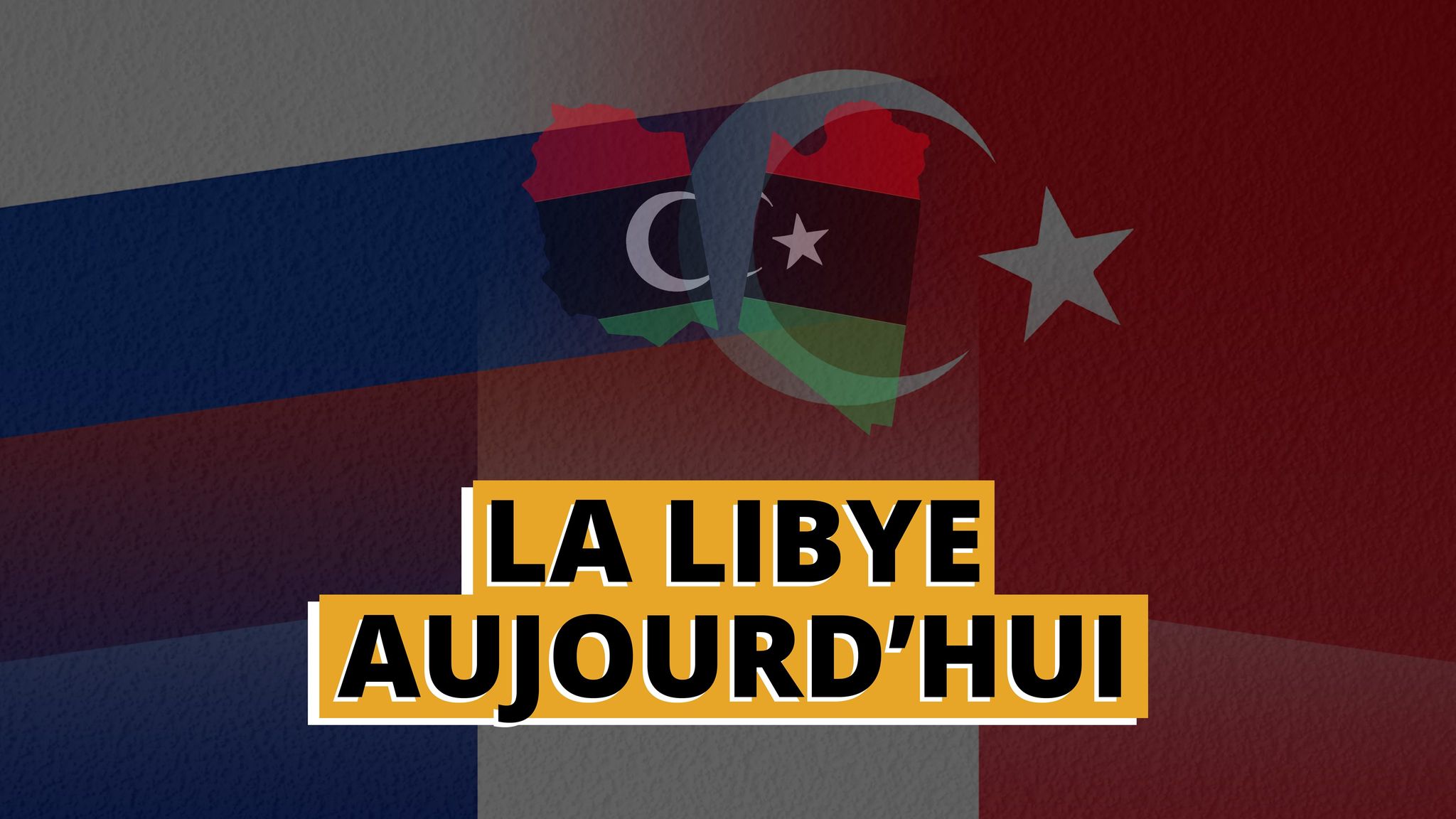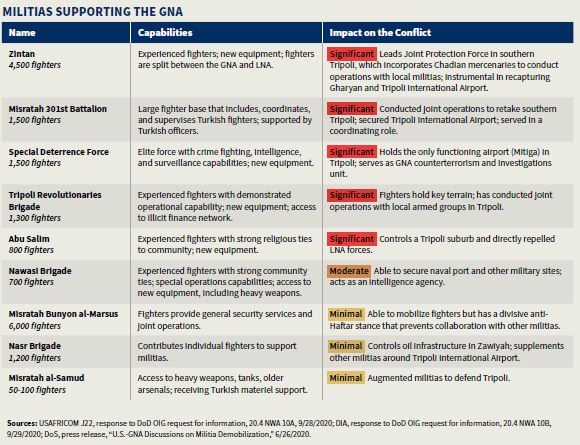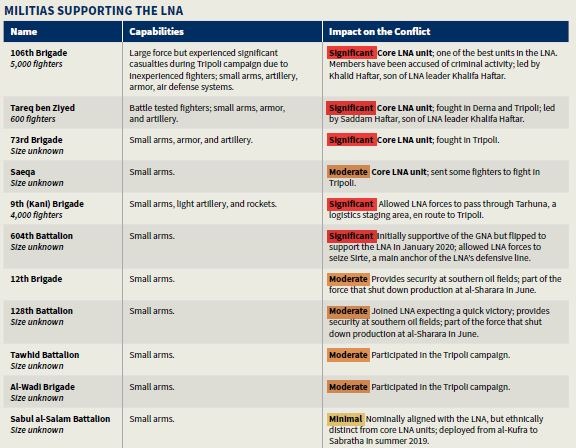Libya today

Article conducted in partnership with @NeuroneIntel
Since the fall of dictator Muammar Gaddafi, Libya has been the victim of conflict and civil war, with controversial foreign involvement. With the prospect of a democratic solution looming at the end of the year, the FOX Project takes a look at the current situation in Libya.
Libyan history
After the Second World War, Libya was occupied by Allied forces. It gained independence in 1951 and became a republic. It soon became Africa’s leading oil producer, ensuring strong economic prosperity and infrastructure development. However, in 1969, Muammar Gaddafi took control of the country in a coup d’état. He ruled with an iron fist, not hesitating to execute potential rivals. His unpredictable and extravagant behavior made him feared by his neighbors and the Western powers of the time. Gaddafi supported several terrorist groups, including the Irish Republican Army and the Red Army Faction.
During the Arab Spring in 2011, the revolt against the dictator began in February in Benghazi, where 173 demonstrators lost their lives on the first day. Foreign countries, including France, began arming the revolutionaries. NATO plays a major role, getting involved in March at France’s initiative.
On October 20, 2011, Gaddafi dies in Sirte after being captured alive by CNT (Conseil National de Transition) forces.
Elections are held on July 7, 2012, with the General National Congress (GNC) replacing the National Transitional Council. From July 2013, armed groups take control of oil installations. The CGN applies Sharia law and extends its mandate without any real legal basis.
General Khalifa Haftar, then the powerful military leader of the CNT, declared the CGN illegal and called for new elections. In May 2014, a military operation was launched by Haftar, and he quickly took control of Benghazi at the expense of the Islamists. Since then, Libya has been in its second civil war.
Since the fall of dictator Muammar Gaddafi, Libya has been plagued by conflict and civil war.
Today, this battered Libya is split in two, with the Tripoli-based Libyan National Government (GNA) in the west of the country recognized by the UN, and General Haftar’s Libyan National Army (LNA) in the east, supported by the House of Representatives in Tobruk. Libya’s second civil war has pitted these two camps against each other since 2014. A ceasefire is in force and has been respected since August 21, 2020. However, this situation remains precarious in part due to the regular build-up of their respective forces in the vicinity of Sirte, the current demarcation line between the two camps.
What makes this conflict so special is the number of militias on both sides, which have no regular army. According to former Prime Minister Mahmoud Jibril, there are over 1,800 militias in Libya today.


A frozen situation due to the internationalization of the conflict
For its part, the GNA is supported mainly by Turkey and Qatar.
Turkey has sent equipment and personnel to support the GNA militias, including engineers and technicians who operate air defense systems and Turkish TB-2 drones. In addition, Turkey is providing an anti-air shield by deploying Gaya-class frigates along the GNA’s coastline. It has also sent KORUT anti-aircraft systems, T-155 Firtina self-propelled guns and electromagnetic jamming systems from the Koral electronic warfare system via civilian cargo ships. Thanks to this support, the GNA was able to gain decisive air superiority over the LNA.
The LNA is supported by Russia, Egypt, the United Arab Emirates and France.
In the face of Turkish interference, Russian President Vladimir Putin decided to send in mercenaries with fighter jets and air defense equipment.
Russian mercenaries Wagner deployed Pantsir S-1 anti-aircraft systems. One system was abandoned when the GNA took control of Ouatiya airport. The United States took advantage of this opportunity to recover the Russian system for examination. The Wagner mercenaries also deployed Russian MiG-29A fighter jets. According to a UN report, a total of 2,000 Russian mercenaries are deployed in Libya in support of the LNA (AFRICOM estimated in September 2020 that there were around 3,000 Wagner Group mercenaries). According to the same report, the Rossiskie System Bezopasnosti Group is also present near Bengazi for mine clearance operations and MiG-29A maintenance missions.
In early June 2020, the GNA offensive marked a turning point in a conflict that had been bogged down since 2014, thanks to the support of TB-2 drones and Turkish intelligence. The LNA was pushed back from the gates of Tripoli towards Sirte in just a few weeks. The stabilization of the situation can also be explained by the Wagner Group’s support for the LNA and Egypt’s definition of Sirte as a “red line”.
According to the UN report of March 2021, Syrian mercenaries in Libya were “from 4,000 at the beginning of the period, their number reached 13,000, depending on the conflict, regional dynamics and availability of funds. At least 4,000 Syrian fighters were under the command of forces affiliated to the Government of National Accord [GNA], including 250 minors”. Syrian fighters were found on both sides of the conflict, a situation reminiscent of the presence of Swiss mercenaries in various European wars from the Middle Ages to the 18th century.
With relations between Turkey and Russia fragile, Ankara and Moscow had every interest in avoiding yet another proxy confrontation. The fragile rapprochement between these two countries in Syria was in danger of being jeopardized.
From regional conflict to intense diplomatic tensions between powers
While the Libyan conflict was almost devoid of foreign interference until 2020, Turkish intervention has fuelled tensions between Turkey and other powers such as Russia, the USA, Greece and France. The European embargo on arms exports to Libya was repeatedly violated.
Read our article on the influence of foreign powers in Africa.
An incident even broke out between the French Navy’s Courbet frigate, operating as part of the European Union’s IRINI military operation, and the Turkish frigate Orucreis. The latter refused an inspection of a civilian vessel coming from Turkey to the port of Misrata, under the control of the GNA in Libya. After a radio exchange, the Turkish Navy then proceeded to illuminate the French warship three times via its radar. Radar illumination is a preparation phase for firing missiles. This led to a diplomatic incident between the two countries, despite their membership of NATO.
A political hope
On Friday February 5, 2021, at the Libyan Political Dialogue Forum (LPDF) in Geneva, Mohammad Menfi was elected President of the Presidential Council, with Abdul Hamid Dbeibah as Prime Minister. All factions welcomed this election, from both the LNA and the GNA.
On February 11, the new President travelled to a village in Benghazi to meet General Haftar. The wager is to recognize the latter’s authority in exchange for a new support base, vital for a government that intends to exercise sovereignty over the entire territory.
The government comprises two deputy prime ministers, 26 ministers and six ministers of state, with five posts, including the key portfolios of foreign affairs and justice, having been entrusted to women – a first in Libya. The role of this transitional government is to organize national elections on December 24 in order to establish a new central government and thus reunify Libya.
However, the UN revealed on February 28 that the new Prime Minister took power after his supporters offered bribes of up to $200,000 to attract votes. His supporters allegedly offered the money at a Tunis hotel where a 75-strong political dialogue forum, selected by the UN, met to elect the interim Prime Minister.
The new Prime Minsiter was sworn in before the House of Representatives in the eastern city of Tobruk on March 15, 2021. The previous week, Parliament had approved his cabinet.
Since then, the members of the National Unity Government have been increasing their number of foreign trips in order to obtain political support and the withdrawal of foreign forces from Libya.
France reopened its embassy in Tripoli on March 29. Maltese Prime Minister Robert Abela also announced the reopening of his embassy.
After 42 years of dictatorship and a decade of violence, Libya still faces many challenges, but hopes for peace and prosperity are stronger than ever.
The Projet FOX will be keeping its members informed of all upcoming developments, on Discord as much as on Twitter.